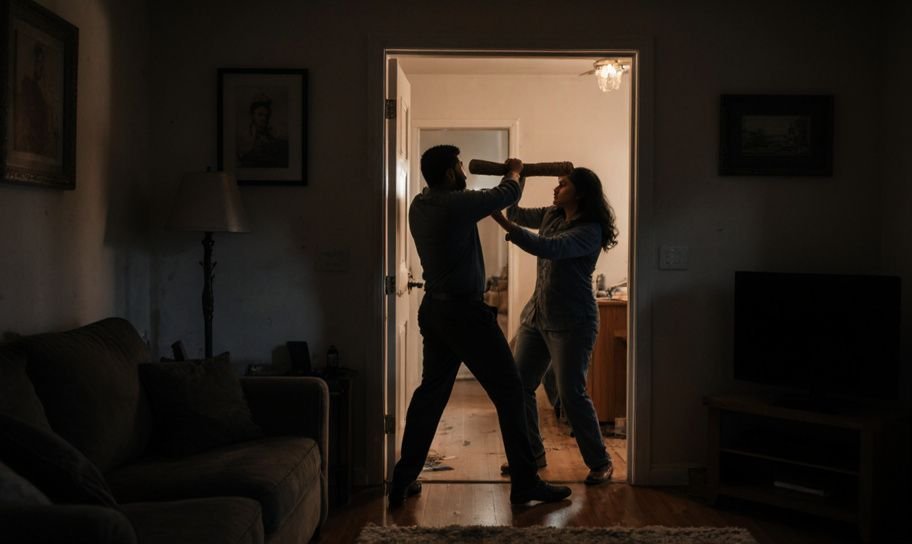
Summary: A barking dog led to a series of events that spiraled into a legal battle involving assault, trespass, and a tragic death. Here's how it all unfolded in a small town, ending with a significant court judgment.
On January 11, 2013, in a quiet neighborhood, a simple bark from a dog led to an unexpected confrontation. While passing by a house, a man, referred to as A1, was barked at by the dog of the homeowner, PW1. In response, A1 threw stones at the dog, triggering a quarrel with PW1. This small incident set off a chain of events that no one could have predicted.
Later that same day, at around 6:45 p.m., A1, along with another man, Pitchai (referred to as A2), entered PW1's house without permission. They had a wooden log and, with a shared plan to hurt someone, A1 hit Santhiya Reni, a relative of PW1, on the head. This attack led to Reni being hospitalized and later dying on January 16, 2013.
The case was brought to court, with charges filed under Sections 449 and 302 read with 34 of the Indian Penal Code. Witnesses, including PW1, testified about the events, and the court had to decide on the involvement and intention of Pitchai.
Pitchai's defense argued that there was no proof he meant to commit murder, as he did not physically attack the victim. They also pointed out delays in filing the First Information Report (FIR) and inconsistencies in the investigation.
On the other hand, the prosecution maintained that Pitchai, by accompanying A1 and encouraging him, shared the intent to harm, even if he didn't strike the blow himself.
The court, led by Justices P. Velmurugan and L. Victoria Gowri, found that while Pitchai did not directly attack the victim, his involvement was significant. The court decided to convict him under a lesser charge of Section 304(2) read with 34 IPC, which deals with causing death without the intention of murder, and sentenced him to ten years of rigorous imprisonment.
"The evidence shows that the appellant had not used any weapon nor attacked the deceased. However, his involvement in the crime was clear."
The court concluded that even though Pitchai did not physically attack the victim, his participation in the incident was crucial. He was found guilty of being part of the plan that led to the death and was sentenced to ten years in prison.